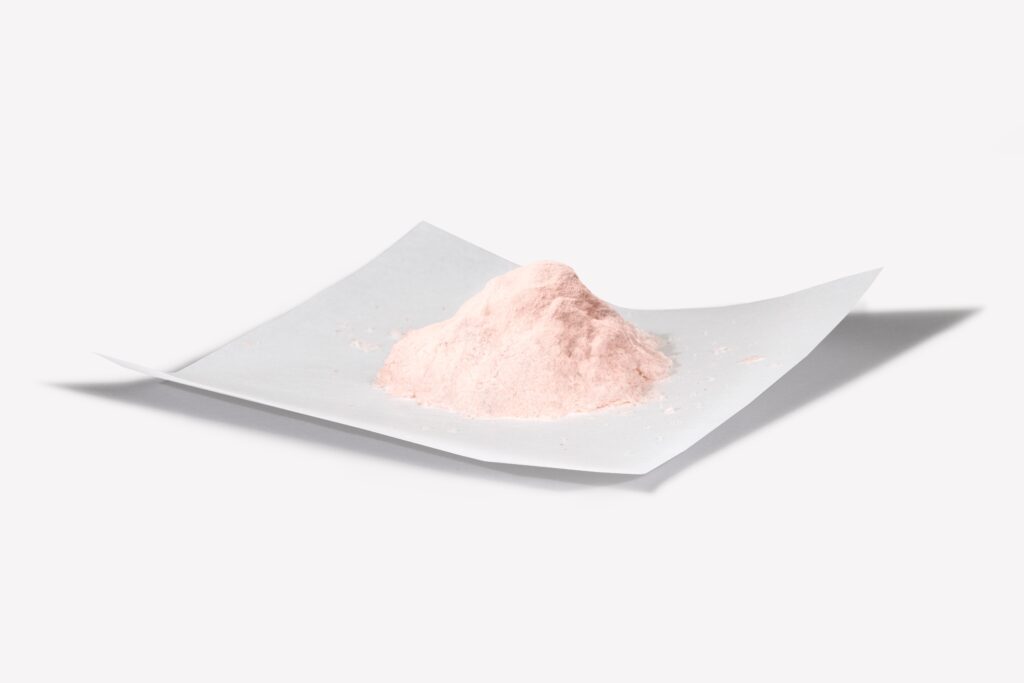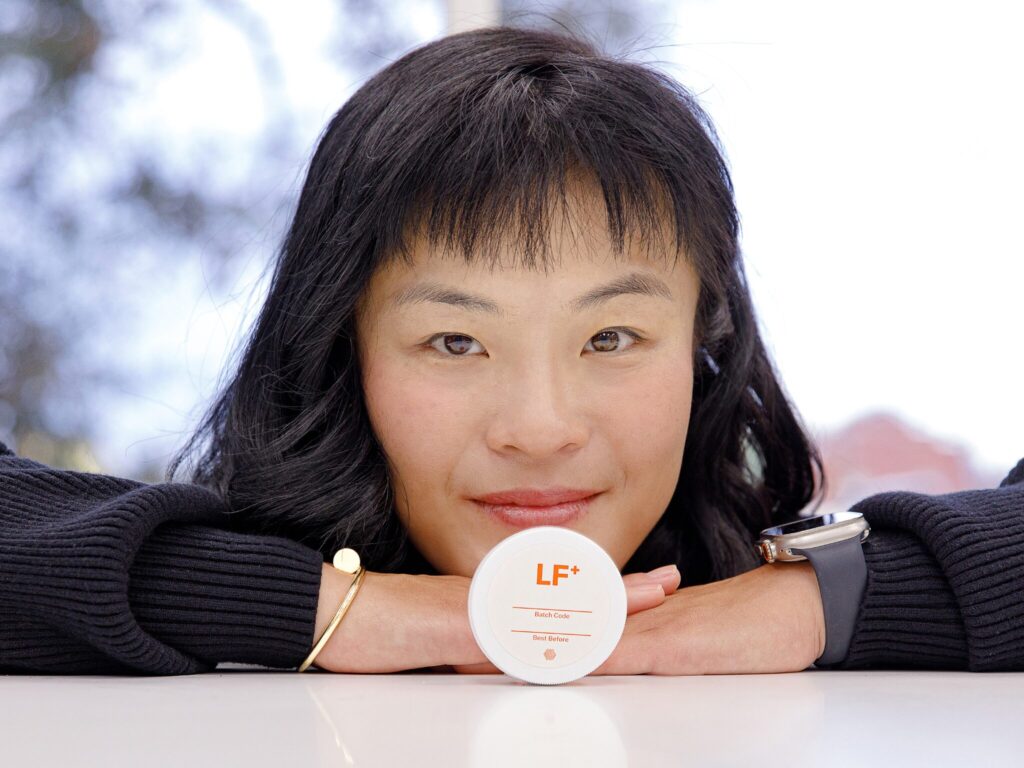Singapore Startup Strikes Deal to Launch Cow-Free Dairy Protein in Functional Coffee Drinks
5 Mins Read
TurtleTree is aiming to launch its animal-free lactoferrin in canned coffee drinks in mid-2025 via a partnership with fellow Singapore startup Mad Foods.
Singapore’s TurtleTree, which uses precision fermentation to make a bioidentical lactoferrin protein, has struck its first homegrown deal with ready-to-drink coffee maker Mad Foods.
The partnership will see Mad Foods incorporate TurtleTree’s LF+ ingredient into its line of canned oat milk lattes to deliver immune support, gut health and iron regulation benefits.
The functional beverages have been earmarked for a Q2 2025 rollout in the city-state, pending regulatory approval. If realised, this would mark the first time a precision-fermented lactoferrin product is available to buy in Singapore.
“We are currently working to submit our regulatory filing to the Singapore Food Agency in anticipation of this launch and anticipate confirmation mid-2025 to line up with the formal launch,” TurtleTree co-founder and CEO Fengru Lin told Green Queen. “We are excited that this will enable market entry for TurtleTree in Asia where lactoferrin is a well-known ingredient.”
She added: “Turtletree is very excited by Mad Foods’ mission and to support their expansion into functional nutrition as well as the accessibility of this high-value protein in Singapore, Australia and beyond.”
Precision fermentation players embrace lactoferrin

Precision fermentation combines the process of traditional fermentation with the latest advances in biotechnology to efficiently produce a compound of interest, such as a protein, flavour molecule, vitamin, pigment, or fat.
Lactoferrin, an iron-binding protein found in human milk and bovine colostrum just after birth, is a prized whey protein known for its antiviral, antibacterial, anti-carcinogenic, immunity-boosting, and gut-strengthening properties.
But it suffers from a supply shortage, since it takes at least 10,000 litres of milk to produce just 1kg of purified lactoferrin. This pushes up costs to between $750 and $1,500 per kg in retail, and limits applications to infant nutrition (which takes up 60% of the protein’s supply) and supplements.
However, some companies are hoping to ramp up lactoferrin supply for verticals like sports nutrition, women’s health, adult and elderly nutrition, and more. TurtleTree is one of them, having managed to scale up production to a point where its precision-fermented ingredient competes with bovine lactoferrin on price.
It also obtained self-determined Generally Recognized as Safe (GRAS) status in the US last year, allowing TurtleTree to sell its precision-fermented lactoferrin to manufacturers of baby formula, supplements, functional beverages, protein powders, meal replacements, and animal-free dairy products.
Several alternative protein startups are focusing on lactoferrin, including Australia’s All G Foods and Noumi, US companies Helaina and De Novo Foodlabs, Californian startup Triplebar Bio (in collaboration with FrieslandCampina), and New Zealand’s Daisy Lab. The latter recently diversified into lactoferrin to accelerate investment returns amid the high costs and scalability challenges of precision fermentation.
TurtleTree, founded in 2019, was one of the first startups working on animal-free lactoferrin, and has said its clients are interested in purchasing $500M worth of LF+ over the next five years. For Lin, seeing other companies follow suit is “very validating” to her focus on “building a product that has a better chance to get to gross profit positive”, in comparison to cell-based milk.
“We’re proud to be the frontrunners and hold a pole position in this race today, and welcome the others to join us,” she told Green Queen. “We believe the market is going to explode and there is space for more to join us in making this ingredient accessible to everyone.”
She added: “On top of this, not many consumers in the Western markets know what lactoferrin is and so together with these other players, we are creating a category – without them, this wouldn’t be possible.”
TurtleTree in talks with bovine lactoferrin producers globally

Mad Foods supplies its ready-to-drink coffee SKUs in Singapore and Malaysia, and is set to expand to Australia soon. With TurtleTree’s LF+, it aims to offer a more health-conscious option and support the shift towards functional foods and drinks that support mental and physical wellness.
This plays into consumer trends, with 37% of people in Asia-Pacific actively treating stress and anxiety, and 39% seeking to alleviate sleep problems. The region’s appetite for functional drinks is massive too, accounting for 40% of the global market share. In Singapore alone, functional beverages are set to be valued at $271M by 2027.
“Our exclusive distributors in Singapore, Australia and Malaysia have a network of more than 5,000 doors, which include speciality grocery stores, supermarkets and convenience stores,” said Mad Foods co-founder and creative head Angelique Teo told Green Queen. “We are also expecting the HoReCa industry to be very excited about this partnership and are working hard to make MAD accessible across all channels.”
Teo added that Mad Foods is working to keep the prices of the lactoferrin-powered lattes as close to the current average of S$4 ($2.99) as possible.
Mad Foods is the third company TurtleTree has announced a partnership with this year, following its deals to produce lactoferrin-infused cold brew espresso shots with Cadence Performance Coffee and an immunity beverage and protein powder with Strive Nutrition. “Both Cadence and Strive are currently in progress, and we are aiming to launch them both formally in Q1 2025, quickly followed up by MAD Foods in Q2 2025,” said Lin.
“We have a number of strategic conversations with various parties who are existing lactoferrin producers. Some have know-how around strain engineering, process development and manufacturing, and some have specific market knowledge regarding Canada, Japan, Brazil, Columbia and more,” she added when asked about TurtleTree’s plans for 2025.
“These will include joint ventures around commercial activities, manufacturing and regulatory support. For these strategic partnerships specifically, we are looking to be seen as an extension in order to broaden accessibility to this important ingredient while demand is high and supply continues to be low,” Lin explained.
“In 12 months, there will be stronger clarity around TurtleTree’s regulatory goals and timelines in terms of products hitting shelves with partners. Consumers, while being more educated in the coming year, will also have more access to begin adding this into their daily routine.”



